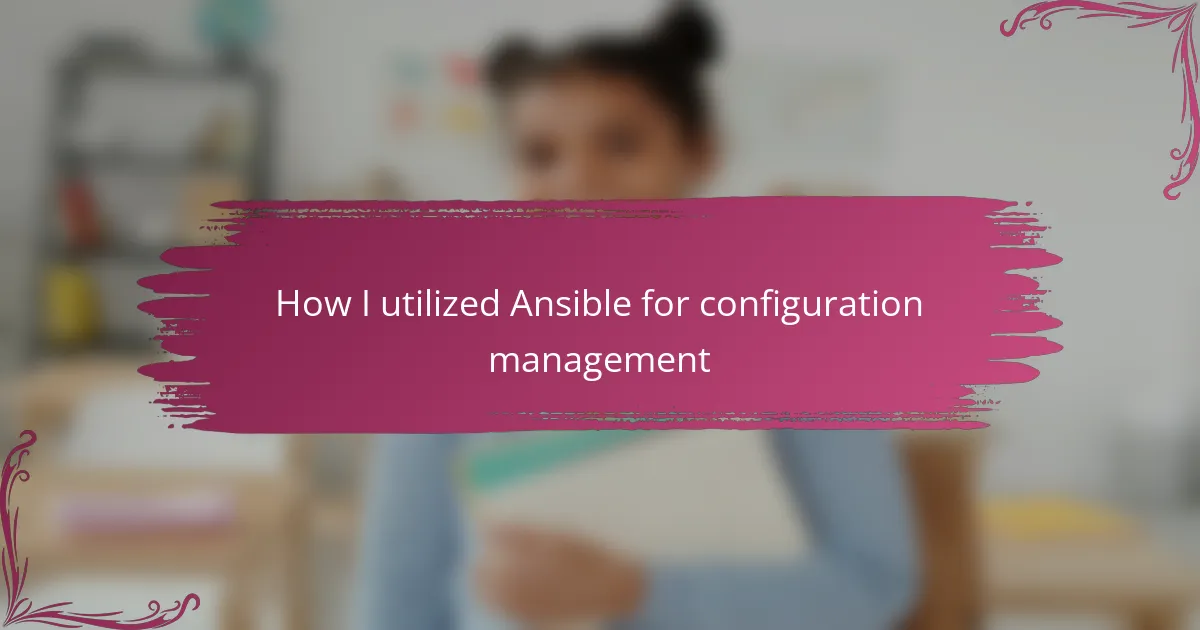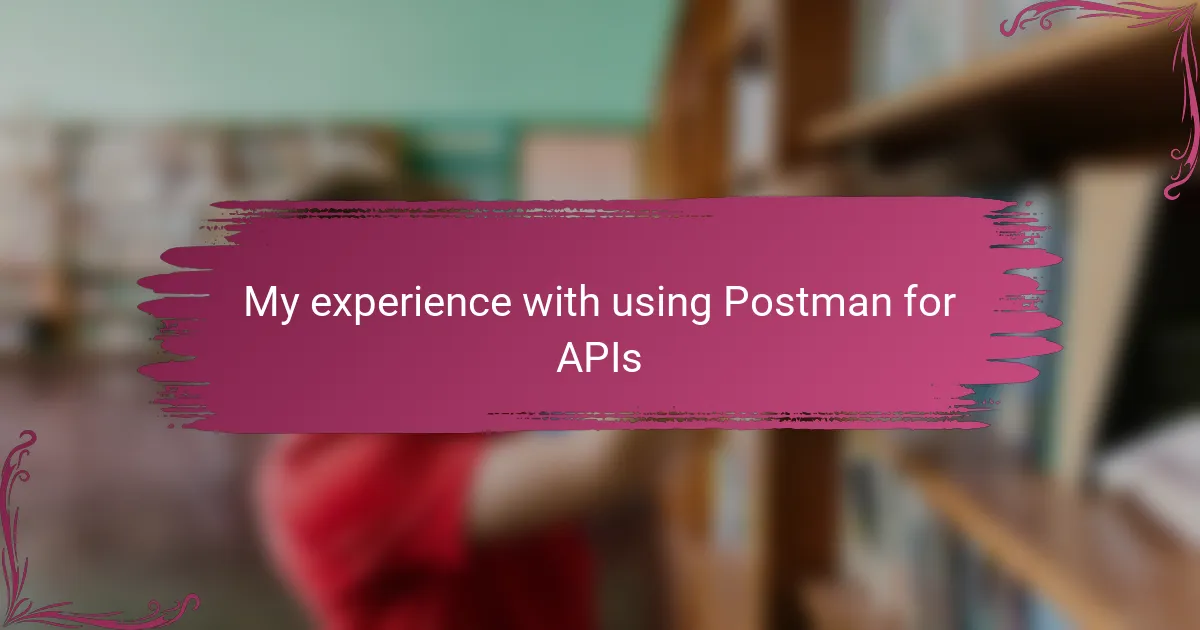Key takeaways Figma’s cloud-based platform enables seamless access and collaboration, reducing issues with version conflicts. Using components and mastering keyboard shortcuts significantly enhance productivity and maintain design consistency. Real-time editing fosters dynamic projects and helps identify design issues early in the process. Thoughtful organization of layers and purposeful use of plugins can streamline workflow and […]

My experience with the JetBrains IDEs
Key takeaways JetBrains IDEs enhance productivity with features like smart code completion and seamless version control integration. Customizing the workspace and mastering keyboard shortcuts can significantly boost efficiency in coding tasks. Troubleshooting common issues, such as plugin conflicts and syncing dependencies, can restore performance without major disruptions. The flexibility and adaptability of JetBrains IDEs cater […]

How I used Django to develop a website
Key takeaways Django’s “batteries included” philosophy simplifies web development by providing essential tools like authentication and URL routing, allowing developers to focus on building applications rather than starting from scratch. Setting up a virtual environment is crucial for managing dependencies effectively and preventing conflicts between projects. Django’s ORM enables intuitive database interactions, simplifying querying and […]

My experience with Firebase for web apps
Key takeaways Firebase simplifies backend development by integrating essential services like databases, authentication, and hosting into one platform, streamlining the development process. Real-time capabilities of Firestore and the Realtime Database enable dynamic, responsive applications without manual refreshes, enhancing user engagement. Managing authentication is straightforward with Firebase, supporting multiple methods and integrating easily with frameworks, which […]

How I integrated APIs in my web project
Key takeaways Understanding APIs is essential for integrating complex features seamlessly, reducing the need to build from scratch. Choosing the right API involves considering reliability, compatibility with your tech stack, and the provider’s community support. Effective setup of the development environment and diligent testing of API calls prevent frustrating errors and streamline the integration process. […]

How I structured my projects with Git Flow
Key takeaways Git Flow enhances project organization by using distinct branches for features, releases, and hotfixes, promoting stability and reducing merge conflicts. Best practices in Git Flow include focused commits, regular syncing of branches, and clear naming conventions to improve collaboration and communication among team members. Utilizing release and hotfix branches allows for thorough testing […]

This is how I optimized my Python scripts
Key takeaways Optimization involves not only speeding up code but also enhancing efficiency through better data structures and reducing unnecessary computations. Profiling tools like cProfile and line_profiler help identify performance bottlenecks by providing insights into time spent in various code sections. Embracing techniques such as list comprehensions, function modularization, and caching can lead to significant […]

My personal opinion about using Trello for project management
Key takeaways Trello transforms complex programming tasks into manageable pieces through visual organization, enhancing focus and satisfaction. The platform facilitates team collaboration with features like task assignment and direct commenting, minimizing miscommunication. Using Trello’s customization options, such as labels and checklists, helps prioritize tasks effectively and keeps productivity high. Regularly updating boards and integrating relevant […]

How I utilized Ansible for configuration management
Key takeaways Ansible’s agentless architecture and human-readable YAML syntax simplify configuration management and reduce overhead. Key features like idempotency and modularity enhance automation confidence and flexibility, allowing for efficient task management. Setting up Ansible is straightforward with minimal dependencies, empowering users to control their infrastructure easily. Troubleshooting is made easier through verbose mode and proactive […]

My experience with using Postman for APIs
Key takeaways Postman simplifies API testing by organizing requests into collections and providing a user-friendly interface for managing headers, parameters, and variables. Advanced features like automated testing scripts and environment variables streamline workflows and reduce manual errors, enhancing overall productivity. Postman’s ability to visualize responses and automate token management significantly eases the debugging process and […]
